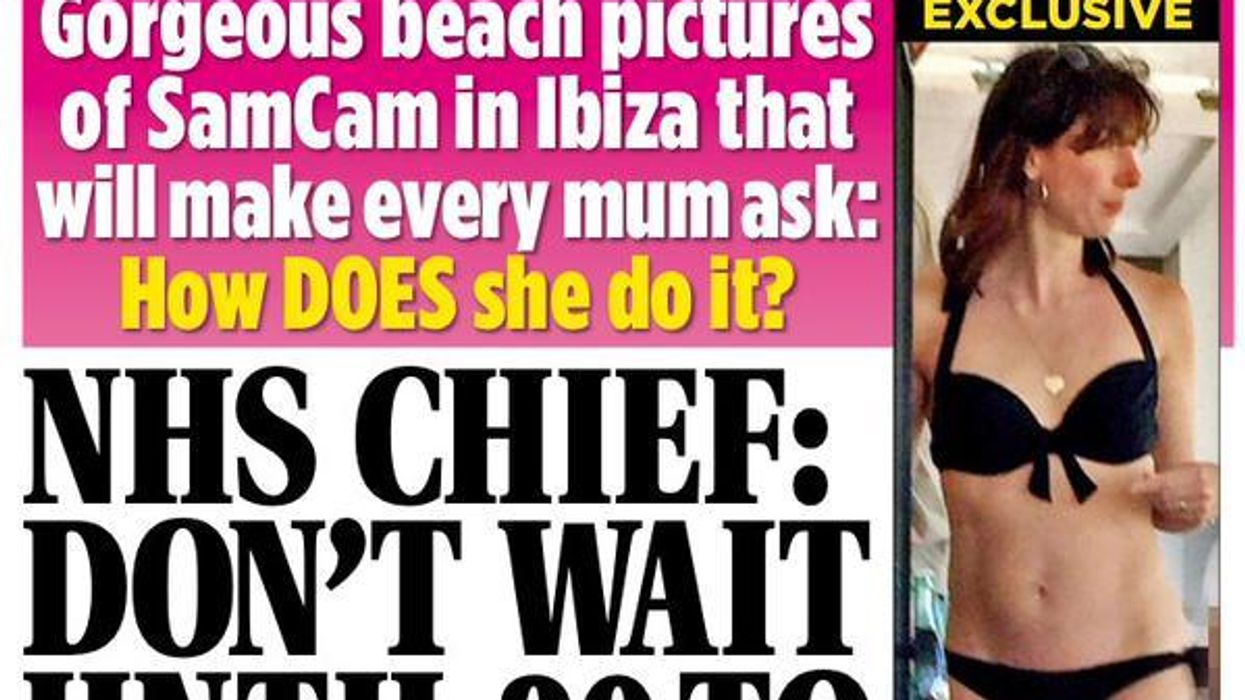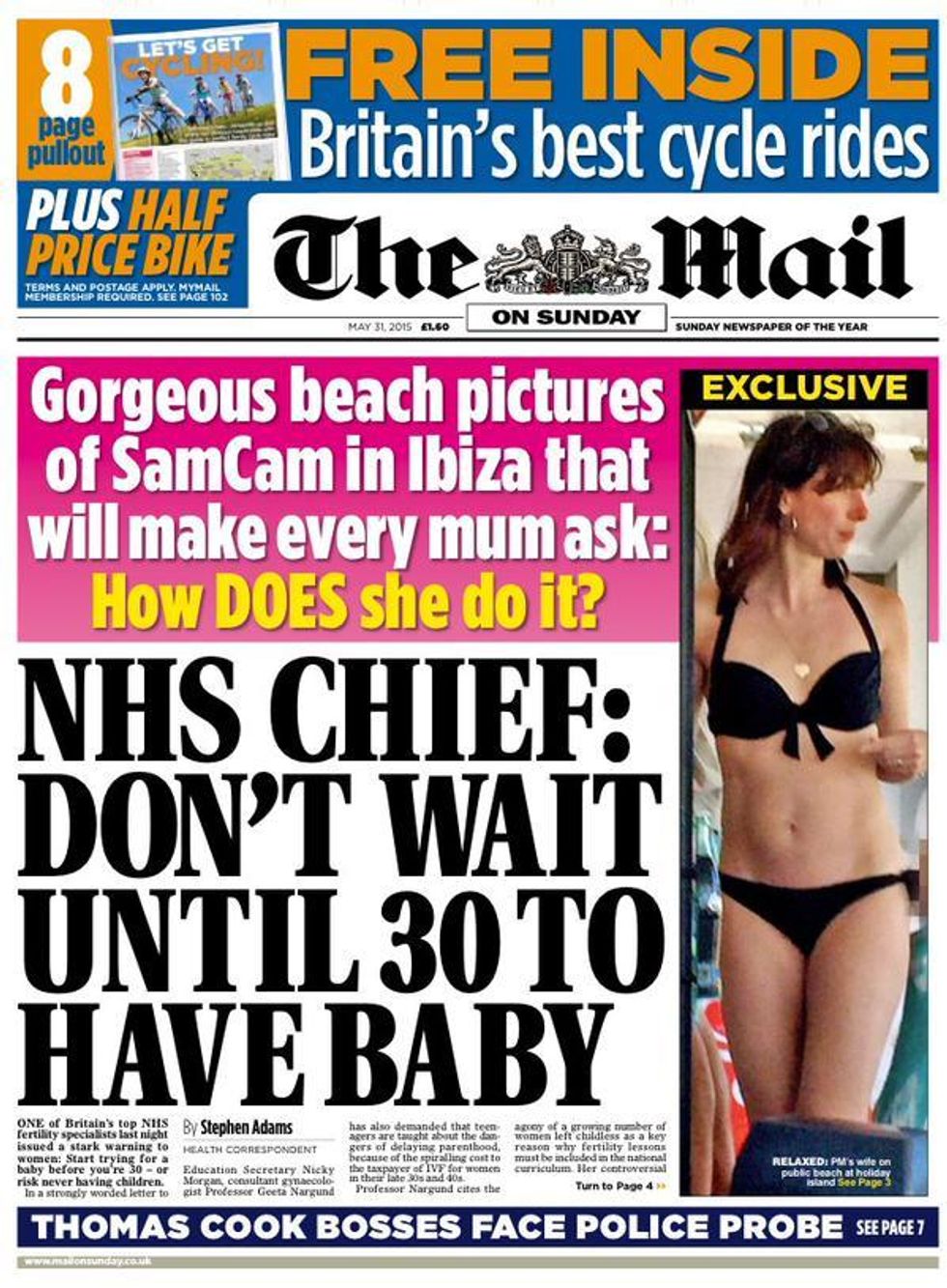News
Dina Rickman
May 31, 2015

Here is the Mail on Sunday's front page.
It juxtaposes a picture of mother-of-four Samantha Cameron (who was 30 when she had her first child) with advice to women telling them not to wait until 30 to have a child.
The full story details a letter from consultant gynecologist Professor Geeta Nargund - who works for the NHS but is not, as far as we can tell, an "NHS chief" - to education secretary Nicky Morgan calling for more education about infertility.
The quotes are not quite borne out by the headline. Professor Nargund actually said that women should start trying for a child if they are ready by 30 in case they have fertility issues.
Ideally, if a woman is ready for a child, she should start trying by the time she is 30. She should consider having a child early because as a woman gets older, her fertility declines sharply.
- Professor Geeta Nargund in a letter to Nicky Morgan
Even if Professor Nargund's letter was accurately represented, a spokesperson for reproductive rights charity Bpas told i100.co.uk the evidence actually shows the vast majority of women should have no difficult conceiving in their 30s. Which means we are free to ignore the Mail on Sunday's concern trolling:
The suggestion that fertility declines so rapidly they should aim to start their family before they turn 30 is not borne out by research. While it can become more difficult for women later in life, particularly over 40, for the vast majority of women in their 30s their chances of conceiving and having a healthy baby are very good.
This kind of fertility scaremongering does not help women who are, in our experience, acutely aware of their biological clock. We should be having a discussion about how we can better support women to have children at the time that is right for them - not trying to scare them in to conceiving before they are ready on the basis of distorted science.
The fertility panics that these kind of headlines are aimed at whipping up have a real impact on women, both psychologically if they have not started their families yet - but also on the use of contraception among older women who understandably assume their chances of conceiving must be low. Unplanned, unwanted pregnancy is often the result.
More: No, a feminist did not abort her baby because it was male
Top 100
The Conversation (0)














